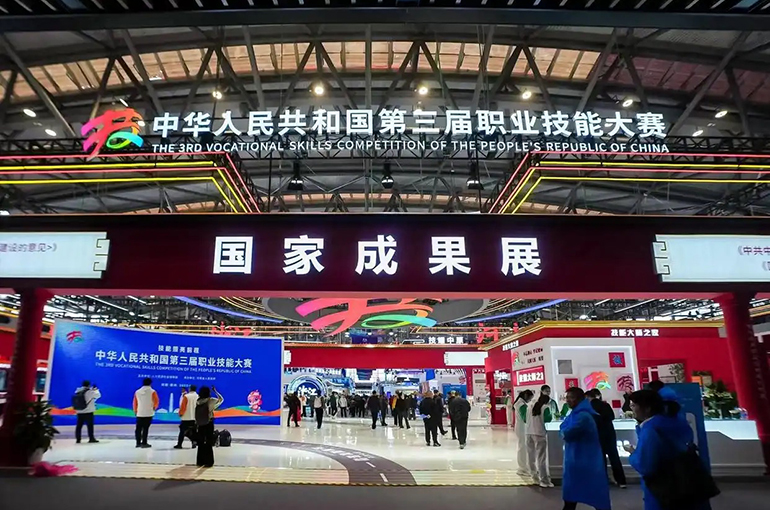Select Language:
The third National Vocational Skills Competition, known as the country’s “Skills Olympics,” recently attracted over 1,000 participants holding university degrees. These competitors showcased their expertise in cutting-edge fields like intelligent manufacturing and digital technology.
This year’s event features a total of 3,420 contestants, including 13 with doctoral degrees, 286 with master’s degrees, and 843 with bachelor’s degrees. University graduates account for approximately 33 percent of the total participants, according to an official from the Ministry of Human Resources and Social Security.
Since its inception in 2020, the competition has been held every two years. This year, it takes place in Zhengzhou, Henan Province, and will continue until September 23. The event includes 106 sub-competitions, with more than half dedicated to areas such as intelligent manufacturing, high-end equipment, digital technology, and new energy.
Notably, there has been a significant increase in participants possessing bachelor’s degrees or higher, compared to previous years when most contestants were from vocational colleges. This shift indicates a strategic move in China’s vocational education to develop high-quality, interdisciplinary talent rather than solely traditional blue-collar workers, explained Zhang Chenggang, director of the China New Employment Forms Research Center.
The rise in highly educated contestants, especially in fields requiring advanced technical skills, reflects the country’s expanding need for skilled professionals with higher education in its ongoing technological advancements, Wu added.
Most doctoral degree holders are engaged in teaching and research roles at technical colleges, while those with master’s degrees are often involved in research, development, or working on the front lines at high-tech companies, organizers shared.
This trend underscores the growing integration of vocational training with technological innovation, highlighting that modern vocational skills encompass not just operational proficiency but also knowledge, technological expertise, and innovative capacity, according to industry experts.






